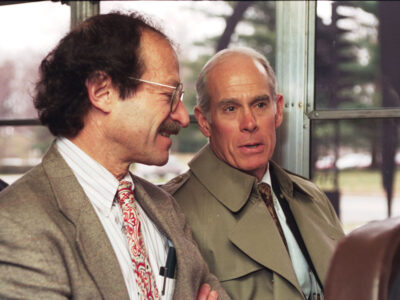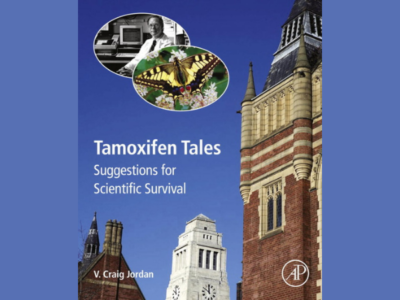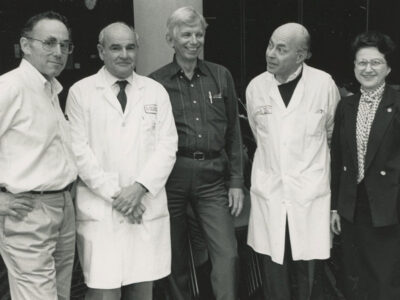In the late 1960s, NCI received the modern-day equivalent of billions of dollars to establish a viral oncology program. At the time, the study of the role viruses played in cancer (or whether they played any role at all) was unknown. This could have been either a triumph or a huge and embarrassing waste of... […]
Dwight Tosh had grown so weak that he was unable to walk. Still, doctors at the rural Arkansas hospital—where he lay in bed for weeks in 1962—were unable to diagnose him.
On June 3, two days after his 87th birthday, John Edward Porter, who represented the 10th Congressional District of Illinois as a Republican for over twenty years, died of pneumonia in a hospital in Northern Virginia.
The ASCO annual meeting began in 1964 as a group of 51 physicians finalizing the bylaws of the organization—and has since turned into a much-anticipated global event that brings together 35,000 to 40,000 people across all areas of oncology.
When Judy Orem learned of her chronic myeloid leukemia diagnosis in 1995, she chose interferon over a treatment that seemed more risky—a bone marrow transplant.
One would get little quarrel with the hypothesis that the development of “targeted therapy” is one of the most substantial advances in cancer care and cancer research over the past 50 years.
The Institute for Cancer Research (ICR) was and is a hotbed for basic and translational discovery. Initially a standalone institute, the ICR is currently the main science engine for the Fox Chase Cancer Center.
In a panel discussion this week, five leaders in oncology proposed an action plan for tackling cancer health disparities and enhancing health equity.
In a panel discussion this week, four cancer centers directors described how their experiences as immigrants have shaped their approach to oncology and the U.S. healthcare system.
Carol Fabian recalls the emotional hardship that came with treating women for breast cancer in the 1970s and eighties.















